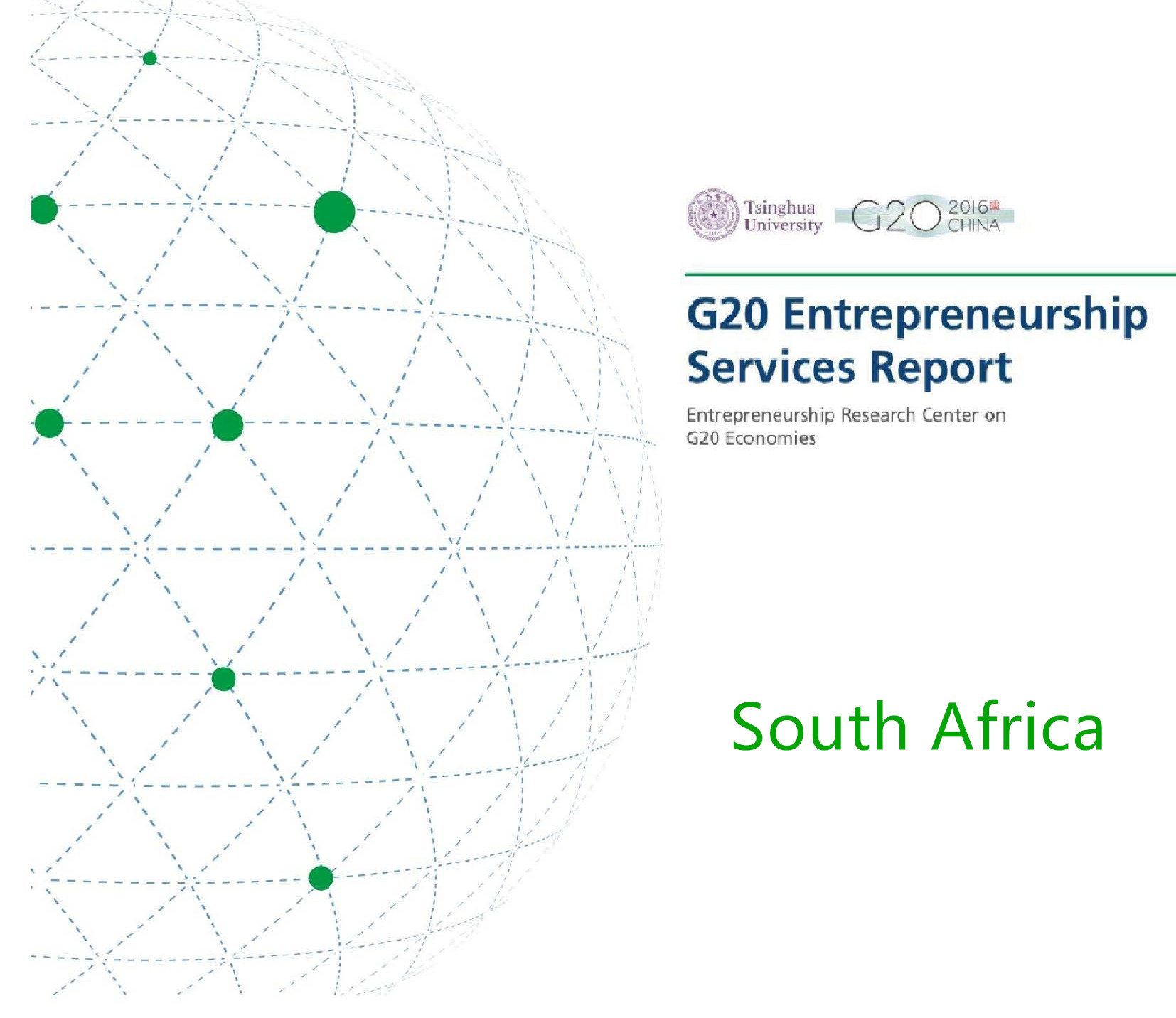
Summary
Affected by various factors, South Africa’s GDP growth rate in 2016 was only 0.3% (vs. 1.3% in 2015 and 1.31% in 2017), the lowest since 2009. South Africa’s fiscal revenue has fallen short of expenditure since 2009, and government debt level has continued to rise, with the unemployment rate remaining high . The sluggish economy causes a great pressure on the South Africa’s entrepreneurship, innovation, and small and medium enterprise (SME) development.
The supportive policy of South African government for entrepreneurship, innovation and SMEs can be traced back to the White Paper on SMME (Small-Medium-Micro-Entreprises) Development 1995. In 2003, the National Small Business Act (1996) was amended to simplify the procedures for starting a business, lower the financing threshold and implement the preferential policy of value-added tax relief. In 2004, the Small Enterprise Development (SEDA) was legally established. In 2011, South Africa's new Companies Act came into effect, further easing the requirements for entrepreneurship.
In 2017, the South African government made SME development a priority in the National Development Plan (NDP). Since 2016, the government has increased its budget for scientific research, giving priority to research, innovation and entrepreneurship. The South African Ministry of Science and Technology has supported 2,800 SMEs in fiscal year 2017/18, and the priority areas of support include entrepreneurship and innovation.
The South African government has given special attention and support to both black entrepreneurship and black entrepreneurs. The Broad-Based Black Economic Empowerment Act (2004) and the Black Economic Empowerment Act (BEE) have unleashed the black entrepreneurial and business management potential of South Africa. As South African population becomes young and youth unemployment is aggravated, the government set up the National Youth Development Agency (NYDA) to support youth entrepreneurship.
The South African government has continuously raised the income tax threshold for small businesses to provide preferential tax support for start-ups and SMEs. In addition to providing SMEs with subsidies and financing supports through the Development Finance Institutions (DFI), the Small Enterprise Finance Agency (SEFA) provides various supports. Credit guarantee financing is another important measure. In South Africa, the development of venture capital is mainly promoted by state-led fund projects, and many funds include projects focusing on financing women's entrepreneurship, such as the Women Empowerment Fund and The Isivande Women's Fund (IWF). In 2016, ZAR X Stock Exchange was established, which is the second stock exchange in South Africa after Johannesburg Stock Exchange (JES), and to which the first stock exchange license issued by the South African government in more than 100 years.
South Africa pays special attention to marginalized small businesses and provides technical support to women entrepreneurs and women-led enterprises. In addition, the South African government has focused on black entrepreneurs and start-ups in terms of industry encouragement.
Since the Reconstruction and Development Program (1994) called for the inclusion of entrepreneurship training in the education system, the South African government has placed a high priority on the entrepreneurship education. South Africa’s entrepreneurship education highlighted multi-party cooperation, including government departments, education departments, private institutions, enterprises, non-governmental organizations and international organizations. On the one hand, some South African government departments work together to provide entrepreneurship training for high-growth enterprises. On the other hand, in response to youth unemployment, the South African government, in cooperation with international organizations and non-governmental organizations, joined entrepreneurship education at the secondary level to improve the employment and entrepreneurship of young students. Entrepreneurship education program is also provided for disadvantaged youth groups without university diplomas. Caring about social entrepreneurship and system change is a new trend in entrepreneurship education in South African higher learning institutions. South African social promotion of entrepreneurial role models has also played a positive role in spreading entrepreneurial culture. However, as with entrepreneurship education and training, the development of entrepreneurship culture will not take place overnight, but will also take time to accumulate.